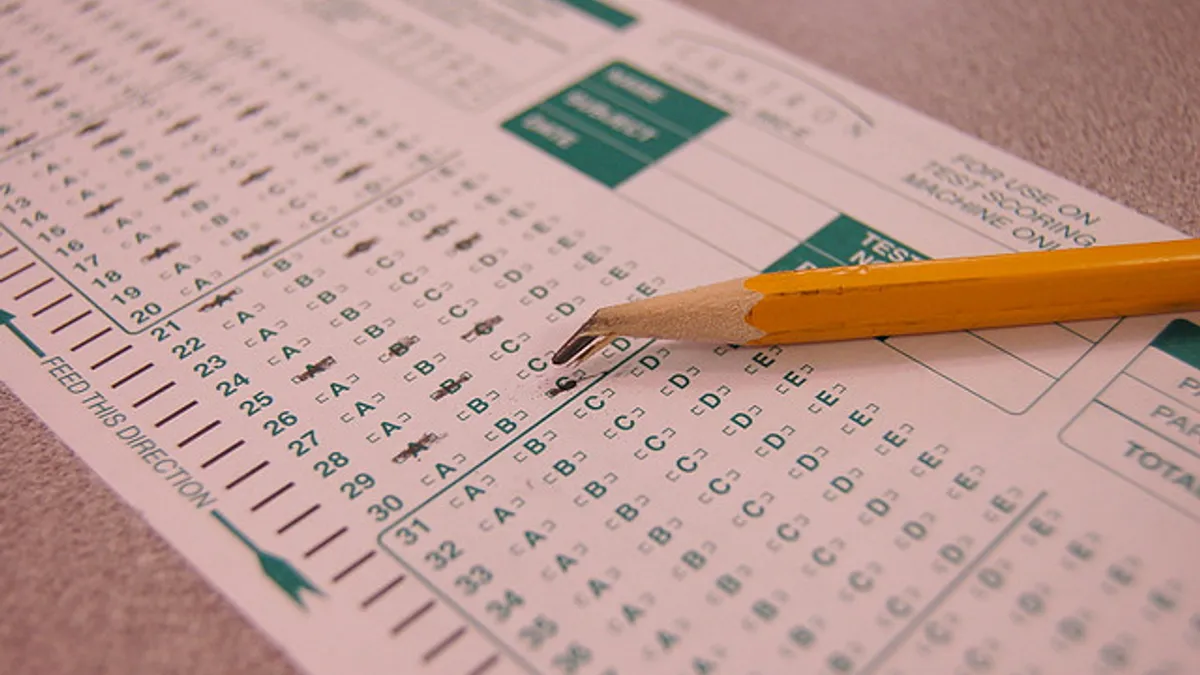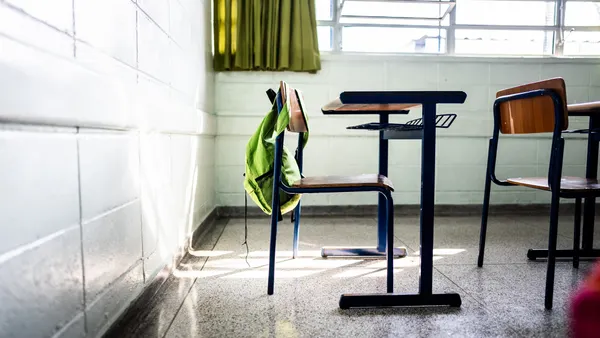Dive Brief:
-
The U.S. Department of Education urged states on Tuesday to develop assessment systems that use multiple measures of academic achievement and follow a competency-based model.
-
The department also pushed state education agencies to rethink how they communicate results to parents and educators. Donald Peasley, assessment team lead in the department's Office of Elementary and Secondary Education, said this has been needed for years but is especially necessary now to help students impacted by the pandemic.
-
The prompt to rethink assessments and communication of results came as part of an announcement to reopen applications for Competitive Grants for State Assessments, which will award $17.7 million to four to six states, with estimated awards of up to $3 million each.
Dive Insight:
The announcement echoes that of former U.S. Secretary of Education Betsy DeVos, who similarly urged states in 2020 to pursue a competency and mastery-based model, calling it “the perfect time” after a year of assessment waivers in light of COVID-19. It also aligns with the Senate’s proposed $50 million increase for state assessments in an appropriations bill released in October 2021. Federal lawmakers are still negotiating over the bill, which is part of a larger set of appropriations proposals.
But while the current and former administrations have expressed support for creative assessment alternatives, testing experts say that’s difficult without similar flexibility in accountability.
“The biggest problem that [states] have … is that the states don't have a lot of room to really innovate, because they're still trapped in the same accountability system,” said Scott Marion, a member of the National Assessment Governing Board and executive director of the Center for Assessment, a nonprofit consulting firm on assessment and accountability.
Recently, the Department of Education shot down requests from New York and Kentucky to waive parts of their accountability requirements. Instead, the department said in a letter to Kentucky it “is eager to provide any necessary support to help States as they restart their accountability systems.”
“Unfortunately, it signals that serious accountability reform will have to wait until the reauthorization of ESEA,” Marion said in an email, “but even then, I recognize there are many forces (groups) working against any accountability reform.”
In an email to K-12 Dive, the department said although it encourages states to amend their accountability systems, changes should fall within limits of the Elementary and Secondary Education Act, most recently reauthorized in 2015 as the Every Student Succeeds Act. States could consider new data sources as part of their accountability systems like opportunities to learn data, Peasley suggested.
“Overall, I’m encouraged by this news, but there’s a risk of putting the cart before the horse,” said Dale Chu, an assessment expert and independent education consultant, in an email. “As I see it, the more pressing matter for the feds is for them to come out strongly and forcefully for testing to resume this spring — especially with rumblings in states about skipping testing once again (e.g., Texas).”
Last year, while only the District of Columbia was completely exempt from administering assessments, other states were afforded significant flexibilities in areas like participation requirements.
In the meantime, states that take the department up on its offer and are awarded funds to rethink their assessment systems will be in for a multi-year undertaking.
“It depends on the complexity and innovativeness of the reform,” said Marion, adding real change in systems would take a minimum of 5-7 years. “The more complex and innovative, the longer it takes."














